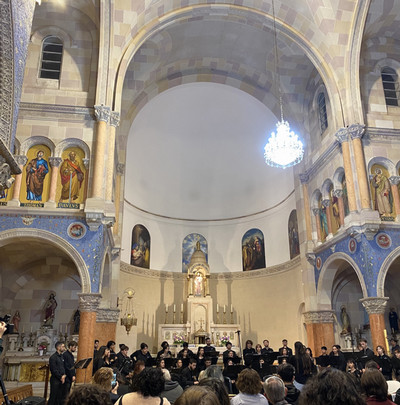Ley Bases Protests and Lots of Research
So much has happened this week that it’s difficult to fit everything into a respectably sized blog post. On June 12, there were strikes and protests against President Javier Milei’s Ley Bases in downtown Buenos Aires and in front of the Congress building. Taking a violent turn, riot police and armed forces used chemical gasses, batons, rubber bullets, water cannons, and other weapons in order to subdue protesters. Many Argentinians are concerned that the proposed reforms will worsen poverty levels in the country, which already devastate much of the population. The official Office of the President posted a message calling protesters ‘terrorist groups’ and claiming that protesters attempted a coup. Many members of the CPM went to the protests to ensure police and armed forces acted properly and respected protester rights, but there were many violent clashes that occurred. Eighteen arrests were made, and over forty people were treated for tear gas injuries alone. June 12 was the day the Senate began discussing the proposed law, and many Argentinians wanted to make their disapproval abundantly evident and advocate for their economic well being. Ultimately, the law was pushed through by a tie-breaking vote from Vice President Victoria Villarruel.
There are several other things happening with work this week. I began working with a team of lawyers and am doing lots of research into state responsibility for crimes committed against prisoners and detainees and the procedures that must be followed to ensure human rights and dignity are upheld. The three main sources of legal information used in such cases are the Inter-American Court of Human Rights, the European Court of Human Rights, and the United States Supreme Court. Trudging through what seems like hundreds of cases of states violating human rights and preventing access to justice is a tad disheartening at times, especially when realizing that these cases only represent successful attempts to seek remedies. This means many individuals are left without appropriate recourse. However, it’s organizations like the CPM that are helping to change this narrative and provide help to as many people as possible. I am to give a presentation today about my findings, and we will move from there with the specific cases that the team is currently working on.

I continue to have an incredible time in Argentina, learning so much about the government and culture. This past weekend, I went to the final thesis of a woman set to graduate as a choral conductor from the music faculty at UNLP. She curated a stunning program and led the singers and musicians in a beautiful performance. I truly enjoy being surrounded by the arts so often, and I miss performing a little less since I am able to enjoy so many shows and concerts. The national theater, which puts on operas, ballets, symphonies, and many other types of shows, is always free and is very close to where I live, so I am a frequent attendee.
In addition to the concerts, I am slowly (and I truly do mean infinitesimally) learning how to dance. My friends Emilio and Facundo have been tirelessly teaching me, and I appreciate their assistance in this trying endeavor. We have great fun, but I simply do not expect to return to the US as a great, or even mediocre, dancer. Other than that, I have very calm weekend plans and will finally be on the hunt for my own mate so I can be as constantly caffeinated as the rest of the population.